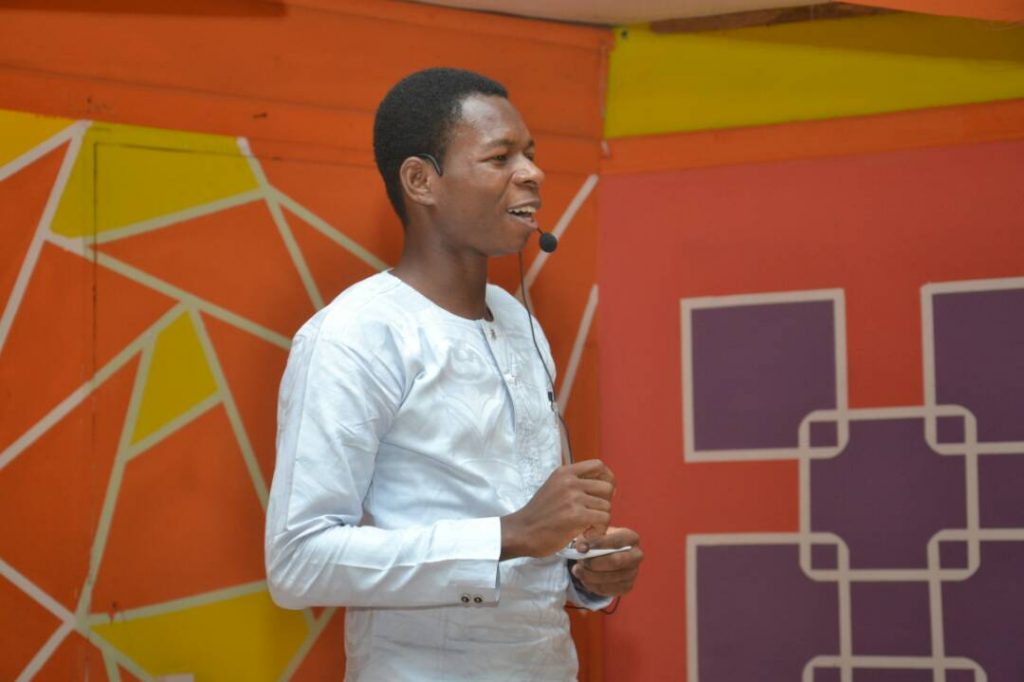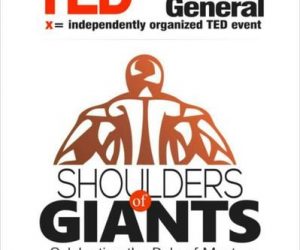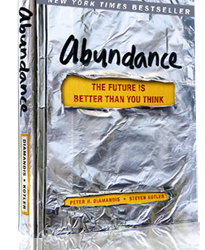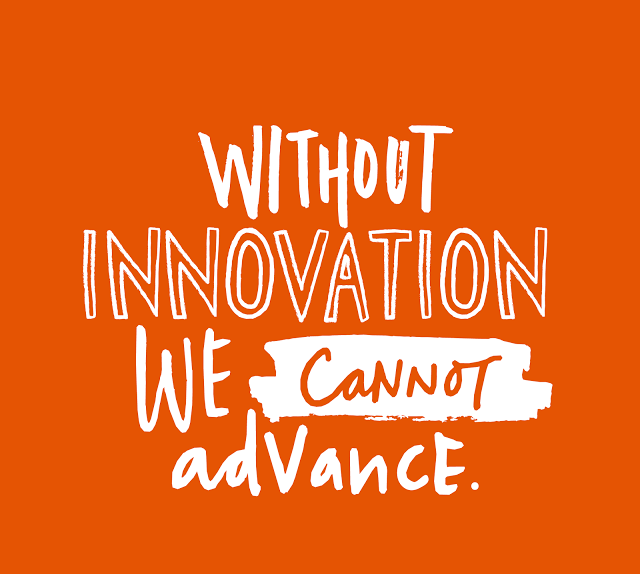Leadership is everything. Leadership is open-ended. I love conversations that deal with talking and walking ‘leadership’ because it is the nucleus of development in every society – it is the central and seemingly most important of human development. It can be defined in contextual and general terms; regardless, it always conveys the message of responsibility with a result that beats the status quo. I may decide put a spotlight on a definition by John Agno which states that ‘leadership is applicable to all facets of life: a competency that you can learn to expand your perspective, set the context of a goal, understand the dynamics of human behaviour and take the initiative to get to where you want to be’ – emphasis on the italicized words are purely mine. Leadership involves leaders – individuals like you and I – bringing people together around a shared purpose and empowering them to step up and lead authentically in order to create change and value for all.
Before I proceed, I’ll love to stress a caveat; my understanding of leadership may seem ‘off-the-wall’ compared to what is practiced in several societies – I seek an indulgence. However, I uphold the strong belief that a deviation from the ideal is not enough reason for the status quo to thrive; we must embrace personal responsibility and play the part of enlightening ourselves on what can be and take actions into making it work. Ideal leadership, based on value-based principles of integrity, ‘servanthood’ and love is possible. If well practiced, it guarantees the development of any nation and the prosperity of her greatest resource – her people.
Foremost, leadership is about leading. With all modesty, I meant what you have just read – leadership is about leading; so is following. One topical myth of leadership I have encountered is one that attaches leadership only to official titles and positions. That myth encourages only those answering titles to their name or those ‘serving’ on one exalted position to be seen or referred to as leaders. I bliss in my heretic deference; leadership is not position, it is responsibility!
Leadership involves the art of leading oneself effectively while allowing others to do the same with our gazes focused on the collective destination. It involves not only the art but the act of personal responsibility and growth; making growth the center of our being and creating the right environment to enable others to become more. It involves leading others, through love – as one leads oneself. Maybe it wouldn’t be out of place for us to consider asking ourselves how we lead ourselves. Do we invest enough in resources that aid our growth? Are we committed to upholding our values even in the face of the worse turmoil ever imagined? Beyond equipping ourselves and others for excellence – or exploits – do we commit ourselves to ‘walking the talk’ or do we talk and walk in divergent lanes?
While some definition of leadership stresses that leaders have, maintain, or increase the number of their followers, I rather see the importance of leaders building several others to be leaders. One of the greatest perks of true leadership is when your mentees are helping other younger leaders grow. That is what I call leading – that is one of my aspirations.
Leadership is about everything, but more about people. Economic development, through political leadership decision, is possible when leaders concentrate not on things (material and mineral resources) but on the greatest resource of each nation – man. A concentration on the development of the people, guided by the principles of vision and values, will translate into further development of the nation. I subscribe to the school of thought that no nation can grow beyond the capacity of its people. Look at several countries from across the world; have you observed a proportional relationship between her human capital development and the country’s economic development? Singapore’s success in the nineties under its Prime Minister Lee Kuan Yew emits lessons that go beyond economics and politics, it teaches a height of possibilities that could occur when the overriding factor in development is the people first. No nation can rise beyond the vision and capacities of its leaders and people. There are enormous lessons we can learn as a nation from this and several other nations, about leadership.
Leadership is not a rare skill. While genuinely great leaders may be rare, leadership – in itself – is not a rare skill. It can be learned and earned. It starts from the realization that leadership has been entrusted on us; we have a responsibility to lead ourselves – each of us leading himself/herself – through a sense of purpose built on the right foundations. It involves growing, thinking, living, and building ourselves through creativity. Describing creativity, Ken Rowat once opined that “creative activity, agonizing though it may be at times, is essentially life-enhancing, often joyful, and this can be judged not from the fixed smiles worn by models advertising power tools but by the extent to which the individual is seriously engrossed in his activity. Outside making love, men and women never feel better than when they are totally engaged in exploration or construction, especially when the motivation is simply: ‘I wonder what will happen if I do this?’” In a similar way, I not only wonder what will happen if we dedicate ourselves to growing, helping others grow and achieve purpose in creative ways, I also wonder what will happen if we stop wandering in the wilderness of vague thoughts, start taking responsibility and leading positive change.
Leadership is not ambition. I want to stress this because I have come across several acclaimed leaders that communicate ambition rather than communicating a vision. While I am not worthy of judging others, I have to state that there is a huge difference between vision and ambition. Vision is the essence of leadership; it has to be clear enough for the leader to articulate it with radiance. Little wonder it has been said that there is nothing more demoralizing than a leader who cannot tell us why we are doing what we are doing. Instead of differentiating, I’ll note what vision is not; vision is not a conception of your private view of the future, it is not personal, private, or selfish ambition. This may sound controversial – remember my earlier caveat – vision is not a goal, but it produces goals, it is not a complicated list of programs but it produces programs. It is not mere physical sight, but the perception of the unseen future. True vision is not for self-promotion, but it promotes others; it never destroys humanity but builds and preserves human value and dignity. True vision may never be fulfilled in a lifetime, but it extends to generations. True vision, like leadership, is not ambition, but it inspires self-service.
Leadership is not assumption, it is feedback. One of the greatest challenges in leadership is that of communication. Often times, failure to communicate effectively pose danger both to the process and the result. I have observed several worthwhile initiatives fail due to basic assumptions laid on erroneous foundations. Let’s not assume, rather let us ask questions. I remember a conversation I had sometimes ago with my friend and partner, Joshua Peter where we laughed about and stressed the need to ‘kill’ assumptions and ask questions. If you do not understand something about someone, don’t assume you do, ask questions. If you feel offended by someone else’ response or reaction, don’t assume the person knows (or wants to injure you intentionally), rather be courageous enough to seek clarifications.
One way to overcome assumptions, and develop our curiosity is to begin to ask more questions courageously, both when we are talking with others and when we are talking in our minds to ourselves. Questioning, or feedback, when carefully done, helps us distinguish between what is known and what is unknown. It further helps us in understanding the context at which we are understood. It enables us to further understand the cultural context at which our messages are decoded, as we strengthen the medium used in communication. One thing is unchangeable; the qualities of questions we ask mostly determine the quality of answers or solutions we get. Stop assuming, start asking, courageously.
Leadership isn’t only about equipping. Imagine this: A group of turkeys attended a two-day training program to learn how to fly. They learned the principles of aerodynamics, and they practiced morning, afternoon, and evening. They learned how to fly using the wind as thrust and how to fly against the wind; together and individually, they learned how to navigate mountains and valleys. It seems great! At the end of the training, they all walked home. This is often what I see in our society; several people intentionally want to grow, learn principles but fail to practice those principles. Growth through equipping is best achieved when principles ‘consumed’ are well ingested, digested – sometimes regurgitated – and displayed in further actions. A secret of growth and personal accomplishment is repetition. Beyond training, repeat and review your values and human relations prowess among other skills.
Leadership is not fenceless: The highest form of leadership is ‘self-leadership’. This is one of the parts of leadership I cherish; the part where we talk about the self-imposed fences put in place by individuals, for them to achieve their visions. These fences are put in place to strike warning signals when we are about climbing over them. If you wish, you may call the fence limits, barriers, but I prefer to call it ‘discipline’. Discipline is the fence that beautifies our personal gardens – it prevents us from pursuing personal indulgence and provides a runway for fulfilling our purposes. It provides a barricade to nurture our character, focusing on our values and taking actions, not only based on convenience but based on necessity. Self-discipline – when fully embraced by individuals – helps in making ‘pleasing results’ a preference over ‘pleasing methods’. My younger brothers and I have been used to reminding ourselves of a mantra, especially when any of us derail from what we ought to do. This mantra is ‘do what you have to do, in order to do what you want to do’.
Self-discipline helps in recognizing and differentiating between what is important and urgent, what is urgent but not important, what is important but not urgent, and what is neither important nor urgent. The fence guiding our leadership garden – self-discipline – is doing the right thing rightly, simply because it is the right thing to be done. It involves resolving to behave in such a manner as if your every act were to become universal law for all people under similar circumstances. Self-discipline involves waiting patiently, when needed, refusing to rush the process in the search for a shortcut. It involves delaying gratification, shunning mediocrity, and managing time and other resources well.
Leadership is not fenceless; it has the beautiful and strong fence of self-discipline. The strength and height of your fence depend on how often you build your fence – it depends on the depth of the foundations of values you embrace. It depends on how often you decide not to compromise on your values in exchange for fame or riches. It further depends on the quality of decisions you make and how persistent you are to follow through with those decisions. If you are to measure your fence, how tall or strong will it be? Start now, be consistently consistent.
Leadership is not playing the game: I have witnessed the game being played. It is – if a statistic is available to back it up – one of the most played games in the world. Though it does not follow the rules of sports, it is mostly enjoyed by individual players often without support from fans. It is a game called the blame game. Almost everyone blames someone for something no one did or did not do. We grew up playing the blame game without been taught the rules; we blame our parents for birthing us in a particular environment, blame nature for our waking from sleep late. We blame the traffic for our lateness; blame the government for the dirty waste bins. I see several cases where we just pass the ‘ball’ to someone else, failing to face the truth and take responsibility. Let’s face it. Though blame-trading may have a soothing feeling, however, it is distorting your reality. It is high time we woke up and started taking responsibility. It is your life, live it responsibly. If some things have occurred because of the nonchalance of others, forgive them for it, and move on. Forgive them, not only because that is what leadership requires, forgive them because you deserve better. Leadership involves taking responsibility, beyond playing the blame game.
Leadership is not just having values, it is living it. Values are important in leadership and human relations. Either individual or cultural, it influences what each of us – or our community – defines as being right or wrong. Our values influence our behaviours and understanding of various concepts. Depending on the cultural balance each of us falls into globally, our individual values are intrinsic and essential part of our makeup as humans and leaders. Values are not just sets of principles or standards we chant, rather they are principles that are so important that we cannot afford to live outside them. They shape our decisions, thoughts, priorities, and character.
A Global Leadership and Organisational Behaviour Effectiveness (GLOBE) study on values or attributes that characterize an outstanding leader, based on a 7-point scale and the “world mean” of each scale (i.e., the average of 61 country means) revealed that irrespective of cultural differences witnessed in several countries, the most desirable traits are Integrity (6.07), Inspirational (6.07), Visionary (6.02), Performance-oriented (6.02), Team-integrator (5.88), Decisive (5.80), Administratively competent (5.76), Diplomatic (5.49), Collaborative team orientation (5.46), Self-sacrificial (5.0), Modesty (4.98). Value-based leadership stresses each of us identifying our core values and living out high standards, decisiveness, and innovation. Value-based leadership seeks to inspire people around a vision, creates a passion among them to perform and does so by holding firmly unto core values.
Leadership is not overstaying. It involves knowing when to leave. This is a key lesson that needs to be re-echoed, especially in our political, academic, and religious communities. Persons in leadership positions often protect their turfs and prevent a replacement from occurring – especially when it involves them. I have learnt over time that one of the true measures of leadership is the ability to leave. It is the ability to make oneself less necessary, through quality mentorship. I had once been instilled with the notion that as a leader you should be irreplaceably important – without you, nothing moves. However, I have fortunately grown beyond this. I have come to understand the essence of the measure of growth, interdependence, and independence that should thrive in teams and communities. I now believe that it is a sign of effective leadership if your team can survive without you – because you have created an enabling environment for each of your teammates to grow and become independent.
One typical example of this quality of leadership was displayed by respected African leader – Nelson Mandela, who stepped down from the most exalted office in his country after serving his first term of four years as President of South Africa. Nelson Mandela had every opportunity to continue his stay in office – including the mandate of the people, but he decided to tow the honourable path of leaving for others to emerge. Learn from Madiba; never miss an opportunity to make others grow; never miss an opportunity to shut up and listen. Never miss the right opportunity to leave.
Leadership is not duplicating you. I earlier talked about the need for leaders to help others grow and become more effective leaders. Yes, leadership involves preparing others to become leaders and take forward a vision, but more importantly, it involves – in a simple but complex sense – proper mentorship. Mentorship is not the process of building others to be like you, rather it is building others – through hard work, consistently conscientious partnership, and diligence – to be more than you. It is not duplicating you. The world already has you. The world needs your help in the growth of someone else to be better than you are. That’s one of the essences of leadership; even the greatest leader ever also displayed it. This is one of the enormous tasks associated with leadership; true mentorship requires patience from the mentor. It requires the mentor to provide opportunities for growth, allowing the mentee to make mistakes/error and learn from them. It requires the mentor not to feel threatened by the successes of the mentee. Mentorship is one of the reasons for leadership.
Finally, while I have the conviction that we have been placed here to tend this modern Eden, with the utmost conditional divine assurance of our status of ‘headship’, I want us to note with every diligence that leadership is not a divine right. It is earned or attained by a dedication to clear vision, a sense of purpose, honorably exemplary character, credible track records, patriotism, and commitment to values among other commonly agreed parameters.
This little insight into what leadership is and isn’t portrays the dire need for us to encourage exemplary civil leadership education from within the family. As I had documented elsewhere, “there is an adept need for individuals to be growth-driven, goal-driven, vision-directed and committed to personal and leadership development of young people” and other members of our global community.
We owe it to ourselves to guard our hearts, lead, and live in the true sense of leadership.
We were born for that – leading and living positively, for exploits.
This piece was sent for publication on April 7, 2015. Syndicating it on this page for future reference.








